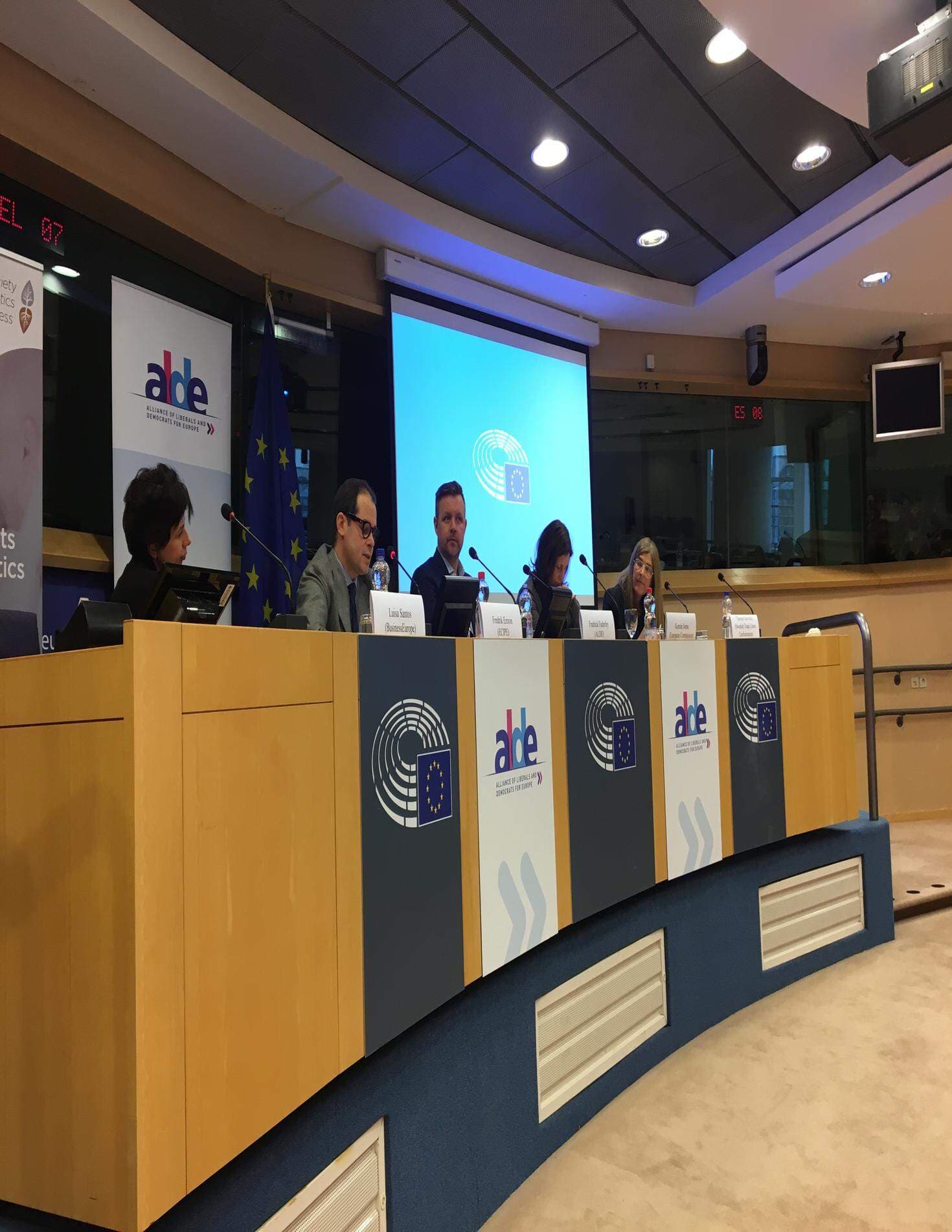Protectionism only produces losers
The impact of globalisation has been positive for most of the world’s population. However, the economic integration of economies also accelerates change which puts increasing pressure on societies to be able to adapt to such change. We need to stand up for the clear advantages of globalisation, while making sure our societies have the flexibility necessary to adapt to rapid changes in technology and labor markets. These were the main conclusion at a seminar about free trade and globalization in times of protectionism, organized by The Society for Business and Politics in the European Parliament.

The participants were Therese Guovelin, vice President of The Swedish Trade Union Confederation, Luisa Santos, Director for International Relations at BusinessEurope, Fredrik Erixon, Director of ECIPE and Kerstin Jorna, Deputy Director-General for Economic and Financial Affairs at the European Commission. The discussion was hosted and moderated by parliamentarian Fredrick Federley (ALDE).
The wave of globalisation that spread across the world between the 1980s and 2010 dramatically increased the standards and quality of life for people around the world. Even so, we are seeing a surge in protectionism and criticism of trade and globalisation. A widespread view is that globalisation creates prosperity in emerging economies, but leads to job loss and stagnation in the West- a claim that stems from the misconception that trade is a zero-sum game where one side must lose so that the other can win. In reality, trade and globalisation have been a largely positive force for consumers, businesses and for society as a whole. Real wages have increased, prices have fallen, working conditions have improved and the salary gap between men and women has decreased. Economies have become more specialized which means that the quality of goods have improved, and that more people can afford to buy better products. The current one-sided focus on the losers of globalisation is notable, when they are by far outweighed by the winners.
It is pretty much business as usual for companies to be in favor or globalization, but it is more unusual to see trade unions expressing support for trade- at least from a European perspective. Therese Guovelin from The Swedish Trade Union was clear in her support of free trade, technology and globalisation in general. She argued that competition leads to increased quality, that growth is compatible with equality and that Swedish unions are more afraid of old technology than new. She did point to the risk that globalisation benefits some more than others, and that trade thus contributes to increasing the inequality gap. Change is accelerated by globalisation which means that societies have to become more adaptable. Kerstin Jorna compared the process to wild horses; if we exercise control over them, they can be made to run in an organized way and towards a common direction. If we let them run their course, they will create chaos and wreak havoc. The analysis of the European Commission is that globalisation needs to be harnessed. Luisa Santos from BusinessEurope concluded that politicians, civil society and businesses each have a role in shaping globalization- but that we should not expect trade policy to be a silver bullet for the wide range of consequences created by technology development and automation. Fredrik Erixon warned about the risks of casually blaming globalisation and trade for inequality and job loss, when diverse levels of education are a much larger cause of inequality than globalisation.
Whereas globalisation will create both winners and losers in the short run, protectionism only produces losers. Trade and economic integration has led to improvements that are unprecedented in human history. The panelists agreed that societies need to adapt, that we need more flexibility in labor markets and a bigger focus on life-long learning. If we try to harness globalisation too much we will inevitably create more losers than winners.